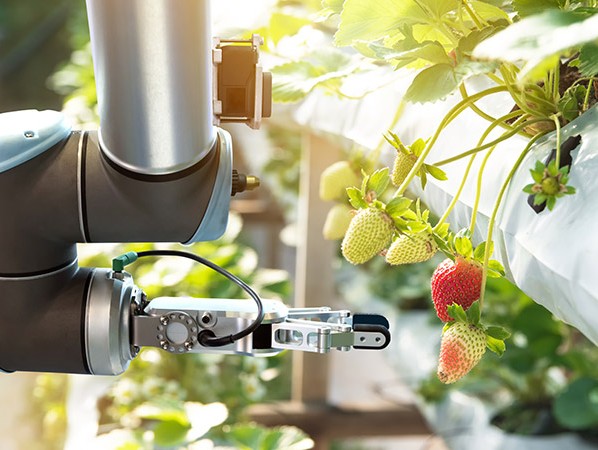
Robotisation can reduce food waste. Robots can compensate for labour shortages in the food sector. Despite challenges, the food industry is ready for robots.
The food sector has a relatively low robot density, but has been catching up since 2016. According to ABN AMRO, this is mainly due to the rise of big data and artificial intelligence. Robots can trace products faster, shorten chains and therefore play a major role in reducing food waste. A large part of this waste takes place during the start of the cycle: at the farm and the food manufacturer. By using artificial intelligence to determine the quality of products as early as possible in the food chain at an individual level, the retrieval of unsafe products can be prevented. And by using robots in different parts of the production process, a lot of data is also collected: not only on the process, but also on products. This enables companies to organise production processes more efficiently.
Robotisation can also compensate for the growing shortage of manpower in the food sector. Due to the tight labour market, more and more companies are finding it difficult to recruit personnel, which can be an obstacle to their growth. Moreover, working conditions in the food sector are sometimes challenging. Cutting vegetables in a cold environment is an example of this. ABN AMRO expects that robotisation can provide a solution to personnel issues in the food sector. Robots can be used to automate processes. This initially requires an investment and leads to different types of jobs, where different skills are required of employees.
Despite the possibilities, the use of robots has proven to be a challenge in the food sector. "Fresh products, such as peppers or tomatoes, differ in size, shape and weight. The processing methods therefore need to be flexible and this flexibility is a major challenge for robots. After all, a robot operates best in a controlled environment", says Nadia Menkveld, Sector Economist Food and Agricultural of ABN AMRO. "Rapid developments in the areas of AI, big data and mechanics are changing and all signals indicate that the food industry is ready to embrace robotisation. Robots can make an important contribution to combating food waste. For example, data can increase the traceability of products, because every onion and every lettuce head has gone through the system. If the quality of products is disappointing, the entire batch is easily traced and the supplier can be informed.
Source: ©Zapp2Photo/Shutterstock.com